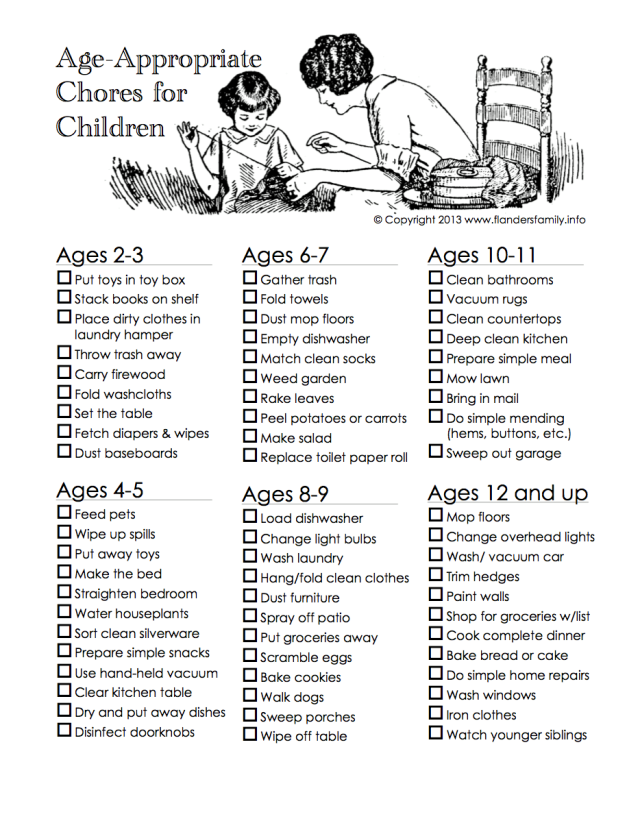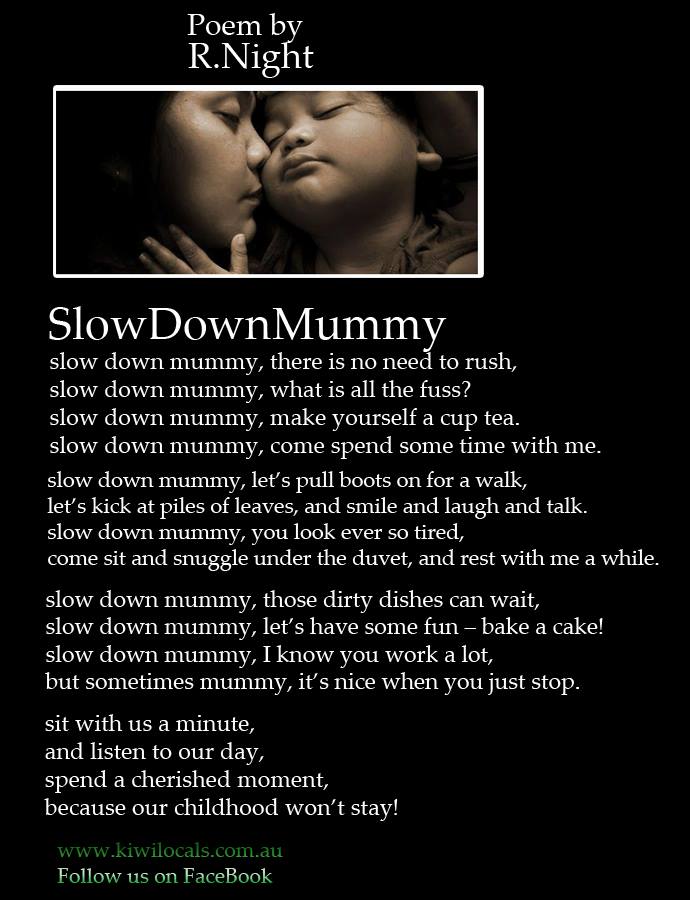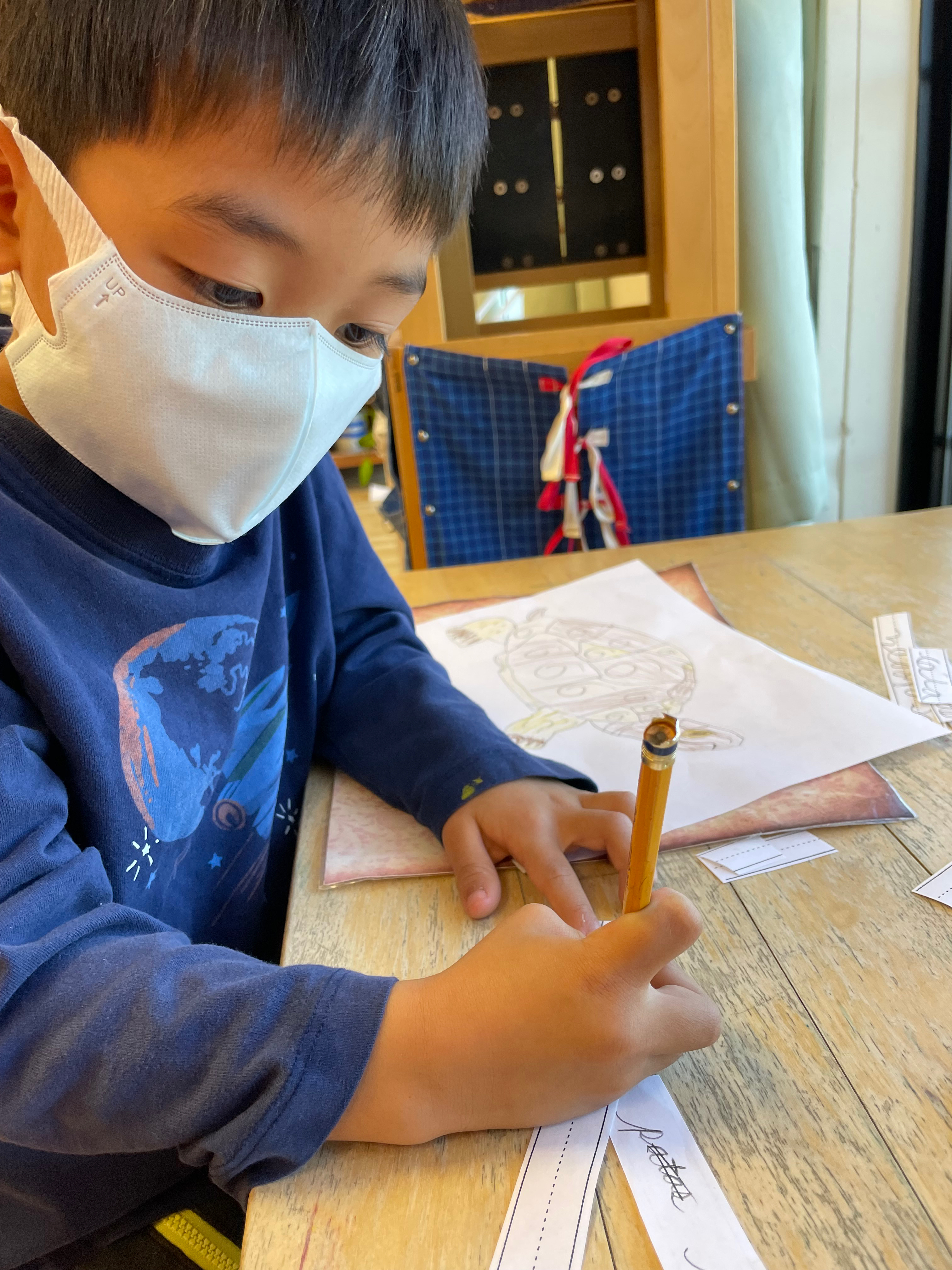(858) 759-0631
It seemed as though we talked about many similar things in our last conferences and so I thought it might be nice to send you all a brief highlight of the main things I discussed with most of you. I have also attached two images below. One is age appropriate chores and hopefully this will help you get started, and the second is a reminder of what is truly important to the lives of our children. Hope you will enjoy it. It's not just for Mommies!
Breakdown of topics:
1st year: (2.5- 4 years)
- Allow them to do more at home: chores, getting dressed, helping out, cooking, cleaning,
- Read with them and read at higher levels
- Don't interrupt focus and concentration
- Help them develop confidence- key to focus, concentration, and good work habits
- Children are able to play alone at home and give parents time to work and do adult chores. They need to become aware of patience.
- They are being exposed to the sounds, and possibly the 1-10 quantities and symbols
- As they are closer to 4 they will be introduced to larger quantities and the decimal system possibly with the addition
- Depending on the child they will be exposed to the sounds and the cursive letters that correspond. We introduce writing before reading in Montessori.
- We help them refine their large and fine motor skills especially their dexterity in the fingers and wrist- it's a preparation for writing. (At home: work with flour to make dough, very different skill than play-dough).
- We also help them inhibit their movements by teaching them control and coordination. This helps them with self-control.
2nd year: (4-5 years)
- They are internalizing their work, don't push
- They may not be as focused at school, but they are learning from the others
- Quantities, number symbols, large quantities, addition, and possibly subtraction will be introduced (depending on the child).
- There is a lot of repetition, this helps "incarnate" their knowledge. The repetition and the material give them a firm grasp of the concepts so that once the next lesson is given, they are ready.
- They will be working with the golden beads for a long time, maps, and other sensorial/ exploration work.
- The moveable alphabet and beginning of writing is introduced along with phonograms (2 sounds creating a third "ch")
- many are straddling the younger years with the readiness for maturity
- Allow for independence
- Introduce them to the concept of consequences and follow-through
- Implement chores, rules, and agreed-upon consequences before incidents occur
- Read with them and help them recognize their sounds and numbers (when presented)
- Help them become patient and understanding by not giving in to them or turning to them when they demand your attention
- Start game nights, family outings, family dinners, and cooking
3rd year: (mostly ages 5+)
- Be consistent on your "rules"
- Invite children to come up with family chores, rules, grocery lists, and also their own consequences
- Begin to enforce patience by setting timers, or giving timelines. Reinforce them and make sure they know it or understand it before walking away.
- Needs vs. privileges: help them understand basic needs and what they are privileged within their lives.
- Consequences can be certain privileges being taken away- they must know this before. Do not react, but enforce prior discussions.
- Limit media to weekends and even then to an hour or less
- Read higher levels, chapter books and help them build vocabulary
- Read and then ask questions about content.
- Parents can take turns spending time with individual children and ask them what they'd like to do, spend time to get to know your child
- This is the year of leadership in the environment, they blossom and it's sudden. Once they are on a path of abstraction (less materials), they move quickly.
- Children are ready for larger questions to be answered, very curious, very scientific, showing readiness for cosmic education/ Elementary
- Children will be exposed to addition, subtraction, multiplication, and division.
Regarding media: I strongly urge you all to put it away and allow it on occasion. It is EXTREMELY evident who watches TV and also when they watch it in the morning. It is a huge distraction in their mind and their focus and concentration on the materials are lost. If media is not good for a developed adult brain, think of what damage it is causing the young developing brain. –Caterpillar Teacher



